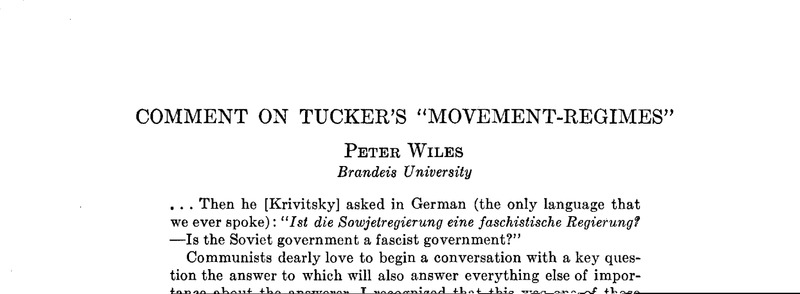No CrossRef data available.
Published online by Cambridge University Press: 01 August 2014

1 Oriental Despotism (New Haven, 1957)Google Scholar.
2 Compare the de Custine's, Marquis A Journey for Our Time (New York 1951 Google Scholar; a translation of his La Russie en 1839, Brussels 1843)Google Scholar, which reveals to the modern reader amazingly many detailed similarities between the regimes of Nicholas I and Stalin.
3 Lipset, Notably S. M., Political Man (New York 1960)Google Scholar.
4 Cf. Arendt, op. cit., pp. 258, 303–4. Miss Arendt's doubtless extreme position is countered by Germino, D. L., The Italian Fascist Party in Power (Minneapolis 1959), pp. 133–9Google Scholar. Germino's claims for the importance of Fascist ideology seem to this reader also rather unconvincing. Mussolini's great Enciclopedia Italiana article of 1932 says Fascism is expressly against Utopias and teleological notions of future happiness, and solves problems empirically, as they arise.
5 Who must be inserted here, as is shown by Utechin, S. V. in the Twentieth Century (London), 07 1960 Google Scholar.
6 Set out, for instance, in Talmon, J. L., The Origins of Totalitarian Democracy (Boston 1952), III/4, 6 Google Scholar.
7 Though Mazzini and Ogarev combined the ideas of an elite and a mass movement.
8 McKenzie, R. T., British Political Parties, New York 1955 Google Scholar.
Comments
No Comments have been published for this article.